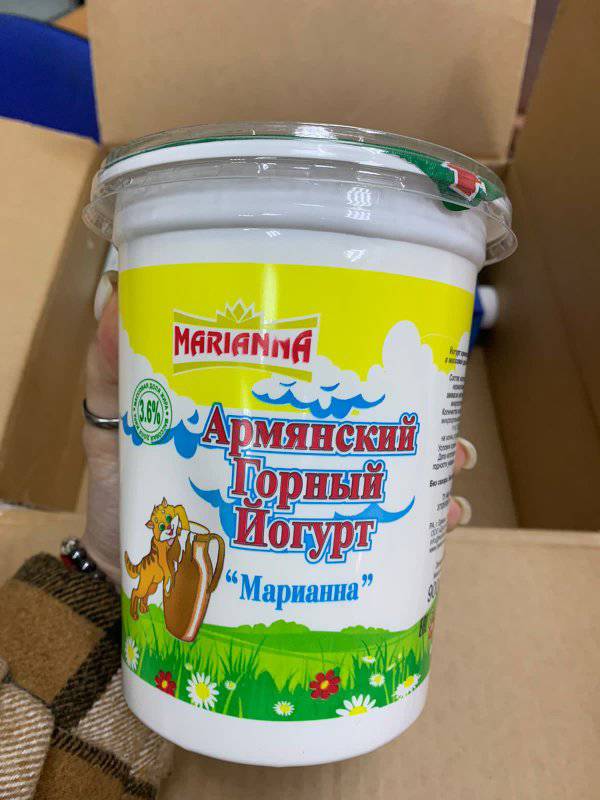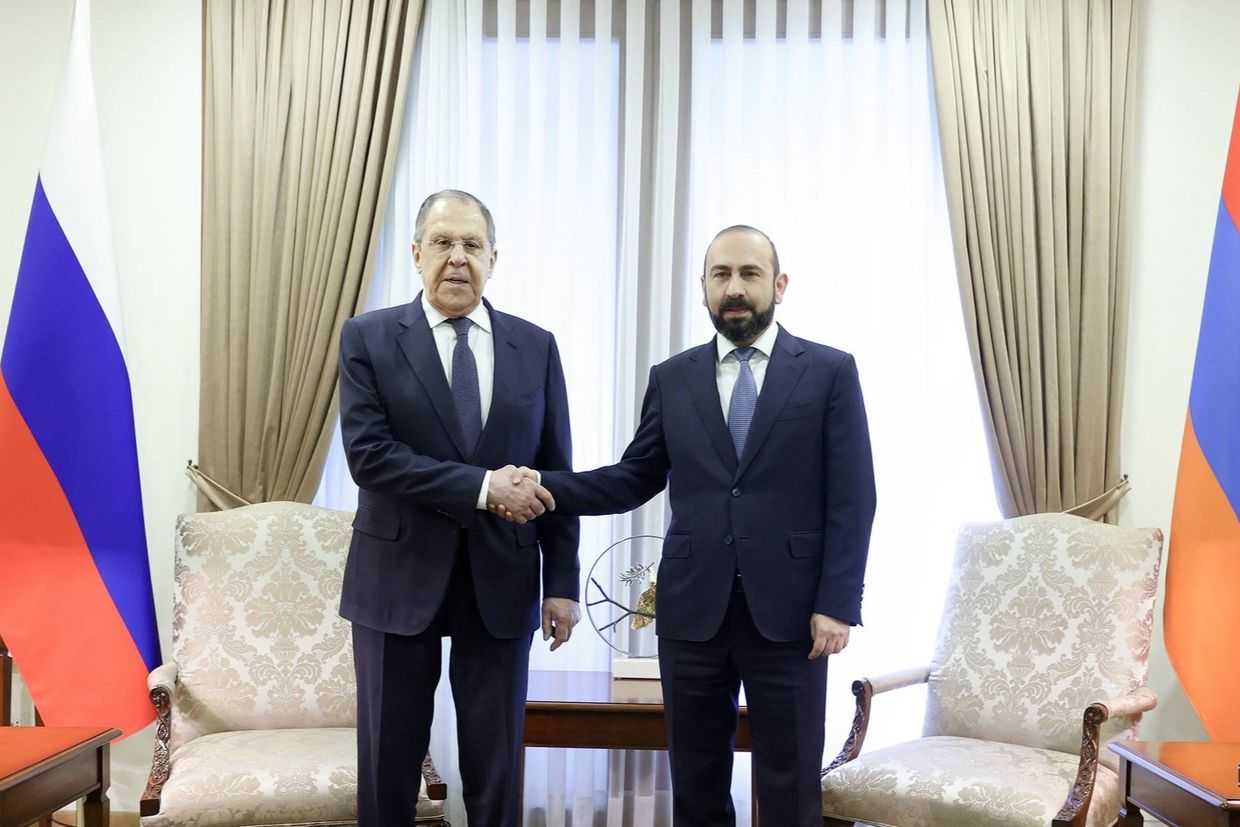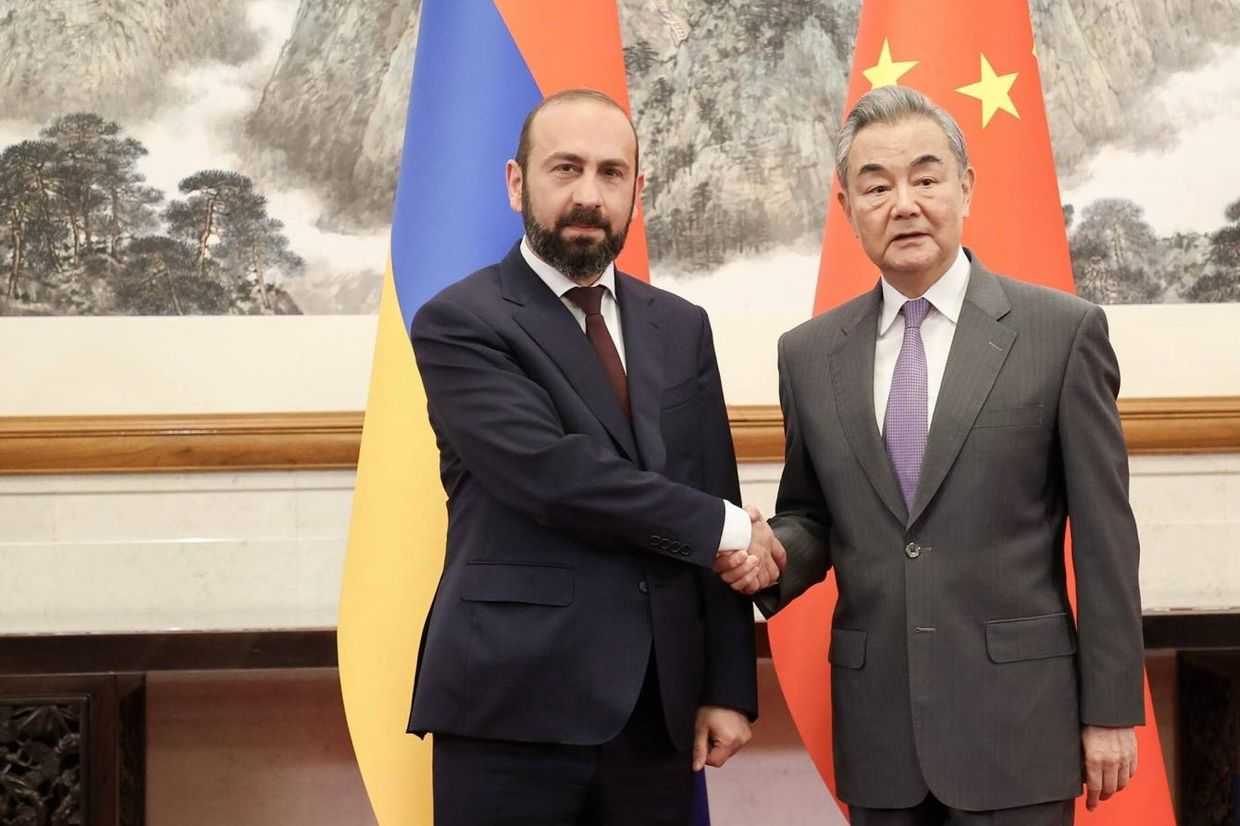
Georgian customs have hindered the transit of Armenian matsun to Russia through Georgian borders, basing the restriction on the similarity of the product’s name to a local yoghurt.
This week, the controversy surrounding matsun and matsoni resurfaced in Armenia and Georgia.
The yoghurt-like dairy products both share similarities in production, taste, and name.
According to Armenpress, the Armenian Ministry of Economy said Georgia had blocked the transit of Armenian matsun to Russia through Georgia.
The problem, according to the ministry, emerged as a result of Georgia registering a geographical indication on matosni in 2012, which offers it protection in international markets as a national product. Legally speaking, a geographical indication is an international status of a specific product that recognises its unique features and qualities owing to its place of origin. For example, champagne is only ever sparkling wine produced in the French province of Champagne.
Armenpress further reported that Armenia’s Ministry of Economy is considering amending the law on geographical indications in order to go forward with a similar registration for matsun.
The outlet also reported that Marianna, the Armenia-based company exporting matsun to Russia, began labelling its products as ‘Armenian Mountain Yoghurt’ after Georgian customs hindered the export of their matsun to Russia between August and September of last year.

On 9 February, Tengiz Kalanadze, Head of the Agricultural and Rural Development Agency confirmed the restriction of Armenian matsun’s transit via Georgia saying that foreign products holding ‘similar names’ to local ones were ‘not allowed under Georgian legislation’.
Kalanadze may have been referring to the Georgian law on appellations of origin and geographical indications of goods, which regulates the commercial use of products that have registered geographical indications.
Both Armenian and Georgian authorities have confirmed that the registration of matsoni and matsun as geographical indications in their respective countries would be followed by a mutual agreement to regulate the export and sale of the fermented dairy products across their borders.
But some reactions in Georgian media and the wider public also underscored some lingering fears among Georgians regarding their cultural heritage in relation to Armenia.
Geographical indications and dairy nationalism
According to the Georgian Ministry of Agriculture, the geogrpahical indication for matsoni was based on its fermentation through a base product named dedo, which consists of ‘bacterial strains existing in the local area of Georgia’.
The National Intellectual Property Center further stresses the importance of dedo as an essential ingredient in the production of matsoni, while governmental ordinances on milk and dairy products exclusively define the yoghurt as a product of dedo fermented by local bacterial strains.
However, Georgian regulations do not clearly specify which lactobacteria strains are necessary for the creation of dedo, thus preventing Georgian producers from exporting the ingredient as a matsoni starter.
News of Georgia’s embargo on Armenian matsun was welcomed by many Georgians on social media, where accusations were thrown at Armenians for claiming ownership of traditional Georgian heritage — a common Armenophobic trope.
Some, however, reminded others that the Georgian word for matsoni was originally derived from the Armenian ‘matsun’.
On 10 February Georgian TV channel Imedi reported on the controversy sparked by the dairy product, with the headline ‘Georgian matsoni against “matsun’”, and a background image of two bottles labelled matsoni in Georgian, with text reading ‘Karabakh is Azerbaijan’ and ‘Dolma is also Azerbaijani’ in Armenian.
Imedi later took down the original video published online and issued an apology over the use of the image, claiming it was due to a ‘technical error’.
On 10 February, Georgian news watchdog Mediachecker quoted an unnamed Imedi graphic designer claiming responsibility for the mistake that went on air. The designer claimed that they had googled ‘matsoni’ in Armenian, and incorporated one of the results into the image without knowing what the text said.







